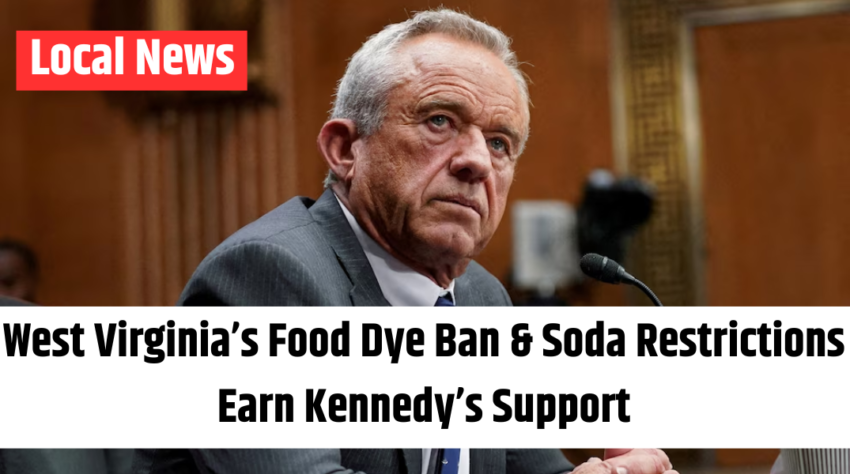MARTINSBURG, West Virginia – In a move aimed at promoting healthier diets, West Virginia has enacted a ban on artificial food dyes and is seeking to limit soda purchases for food stamp recipients. The legislation, signed into law by Governor Patrick Morrisey, aligns with health policies championed by U.S. Health and Human Services Secretary Robert F. Kennedy Jr.
Standing before an audience of schoolchildren and supporters, Morrisey signed the bill at a high school auditorium in Martinsburg, where Kennedy was also present to endorse the initiative.
New Restrictions on Food Additives and SNAP Purchases
The ban on food dyes will roll out in two phases:
-
August 2025 – The restrictions will first apply to school meal programs.
-
2026 – The ban will extend to all food products sold in West Virginia.
However, state officials have not yet provided details on how enforcement will work.
Additionally, Morrisey is pushing for federal approval to prohibit soda purchases with Supplemental Nutrition Assistance Program (SNAP) benefits, commonly known as food stamps. Kennedy, expressing strong support for the measure, urged other states to follow West Virginia’s lead.
Also Read – Capito Responds to HHS Job Cuts & Secretary Kennedy’s SNAP Benefit Changes
“I encourage every governor in the country to apply for the same waiver, and we will approve it,” Kennedy said to a cheering crowd. Many attendees wore badges promoting the “Make America Healthy Again” campaign, a slogan associated with his health advocacy efforts.
Public Response and Controversy
While the event drew enthusiastic supporters, it also attracted protesters outside the venue. Some carried signs criticizing Kennedy’s views, with messages such as “RFK is Dangerous” and pro-vaccine slogans in response to his past comments on vaccinations.
During his speech, Kennedy claimed that artificial food dyes contribute to rising cases of ADHD and cancer. However, scientific research on the health effects of food dyes remains inconclusive, with some studies suggesting potential risks while others find no definitive link.
Kennedy also criticized major soda companies, comparing them to the tobacco industry, arguing that processed sugar and additives are contributing to national health problems.
Ongoing Debate Over Food Stamp Restrictions
For years, Republican lawmakers have pushed to limit SNAP benefits from being used to purchase sugary drinks and processed foods, arguing that public funds should promote healthier diets. However, critics of such restrictions argue that they unfairly target low-income individuals and reduce personal choice.
West Virginia’s proposed soda restriction hinges on federal approval, and it remains to be seen whether the waiver request will be granted. If approved, the policy could pave the way for similar measures in other states.
